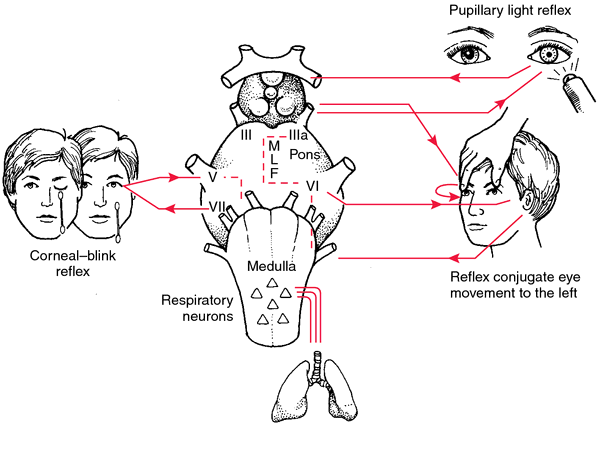|
Before
1968, the determination of
the moment of death was done
by the cessation of
respiratory and cardiac
functions which are entirely
necessary to maintain the
unity of a living being. In
1968 an ad hoc committee at
Harvard Medical School,
chaired by Sir. Henry
Beecher suggested revising
the definition of death in a
way that would make some
patients with devastating
neurologic injury suitable
for organ transplantation
under the dead donor rule.
Brain death is a death with
certitude, namely the
complete and irreversible
cessation of all cerebral
activity, the person was
going to die in any case
a.Shock/
hypotension like anaesthetic agents, neuroparalytic drugs, methaqualone, barbiturates, benzodiazepines,
high
dose bretylium,
amitryptiline, meprobamate,
trichloroethylene, alcohols. ->Absence of vestibulo-ocular reflex
->
Absence of cranial nerve
response to pain
c.A
Neurologist or Neurosurgeon
nominated by Medical
Superintendent
|
Designed, Developed and Hosted by
National Informatics Centre
Department of Electronics & Information Technology
Ministry of Communications & Information Technology
Government of India

